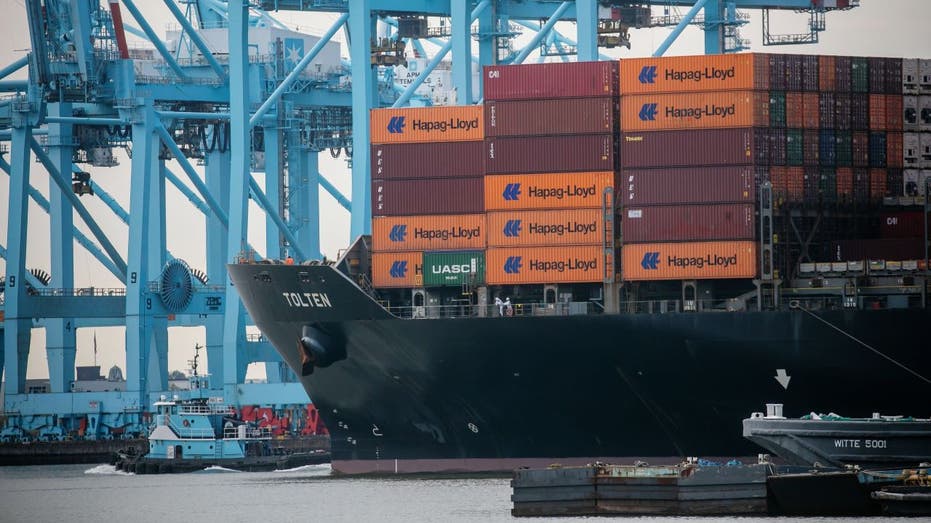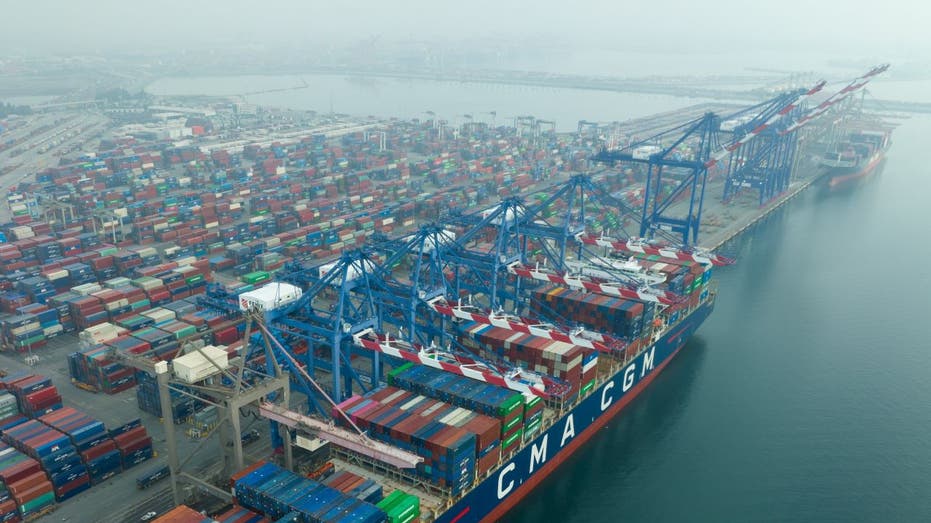Dockworkers at dozens of ports in the U.S. went on strike Tuesday for the first time in nearly 50 years over better wages and the use of automation.
Experts say ending the work stoppage will require management, policymakers and workers to develop a solution that guarantees operational efficiency and job security.
“The resolution of the East Coast port strike will hinge on addressing the balance between labor demands and the growing push for automation,” Richie Daigle, supply chain evangelist at Tive, told FOX Business. He added that the challenge “is determining how ports will integrate advanced technology without displacing workers.”
Former National Labor Relations Board agent and consulting executive Jason Greer agrees, telling FOX Business that ports must utilize automation to some extent in order to ensure their survival.
POTENTIAL PORT STRIKES SEND RIPPLE EFFECTS THROUGH SUPPLY CHAIN, THREATEN INFLATION
Who comes to the table next will come down to “what side is facing the most political pressure,” Greer said.
Americans should be prepared for lengthy port strikes lasting at least three to four months, he said. Meanwhile, other experts are projecting this will last merely a week before the government steps in.
International Longshoremen’s Association (ILA) President Harold Daggett said in a September interview about the effects the strike would have on the economy: “I’ll cripple you. I will cripple you and you have no idea what that means. Nobody does.”
In part, the ILA, negotiating on behalf of 45,000 dockworkers at three dozen U.S. ports that collectively handle about half of the country’s seaborne imports, is asking for a 77% wage increase, which Greer doesn’t believe is “economically feasible.”
Greer, president of Greer Consulting Inc., said he’s never seen a wage request as high as the current ask.
The U.S. Maritime Alliance (USMX), which represents the port employees, raised its offer to a 50% increase in wages over six years. The alliance also has pledged to impose limits on automation. Greer believes that this commitment falls short in the view of the union.

“This is not just about money. This is about the fact that they are making a statement because they want the world to know that the longshoreman union is strong, is unified and, more importantly, that you need us a lot more than we need you,” Greer said.
Still, a 50% increase in wages is rare, Greer said.
PORT STRIKES COULD HAVE ‘DEVASTATING’ IMPACT TO ECONOMY, RETAIL TRADE GROUP SAYS
If the union had its way, Greer believes they would try and extend this strike to upwards of five to six months. But he thinks it’s more likely that President Biden will step in and invoke the Taft-Hartley Act, which triggers an 80-day “cooling off” period between the union and the companies where employees return to work.
Brian Pacula, a partner in West Monroe’s Operations Excellence practice, believes it will only take a week for the government to step in given the significant threat to the economy. From there, he estimated that it might take another two weeks of negotiations before both sides can reach a compromise.

However, the Biden administration has already signaled that it has no plans to intervene.
“We support collective bargaining and believe it’s the best way for American workers and employers to come to agreement,” a Biden administration official previously told FOX Business. “That’s why we encourage all parties to remain at the bargaining table and negotiate in good faith.”
Read the full article here











